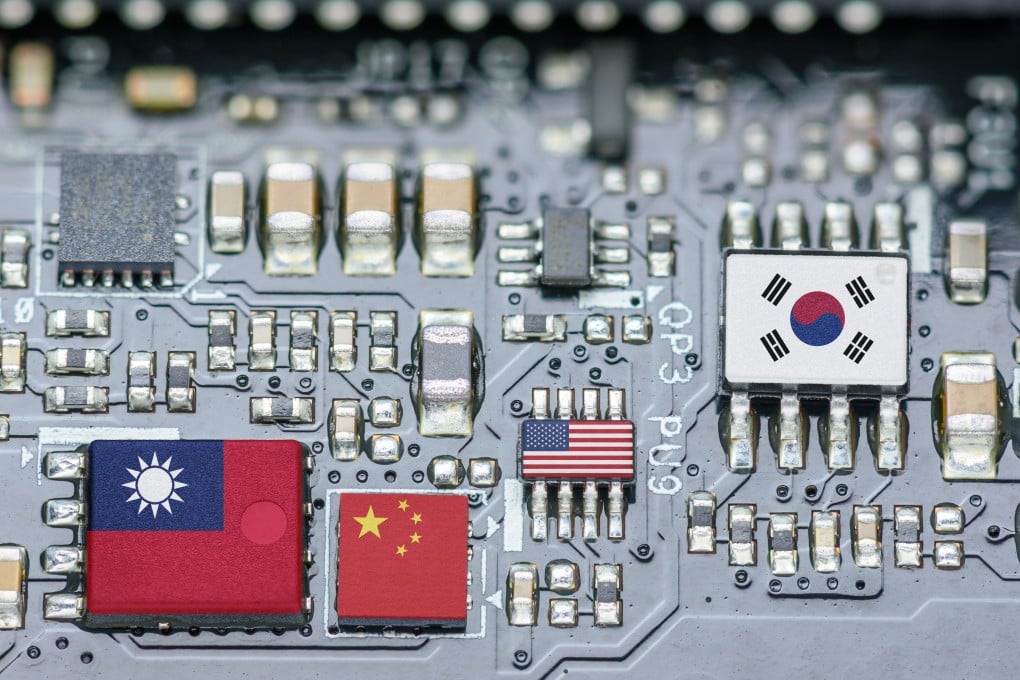Advertisement
US-China tech war: Seoul walks fine line as Washington puts pressure on South Korean firms’ chip manufacturing on mainland
- Seoul is said to be helping memory chip giants Samsung Electronics and SK Hynix steer clear of geopolitical conflicts that may damage their businesses
- Both Samsung and SK Hynix have made hefty investments to build and operate chip foundries in mainland China
Reading Time:3 minutes
Why you can trust SCMP
19

Relations between Beijing and Seoul, especially in the field of semiconductors, could soon be put to a test, as Washington dangles nearly US$53 billion in incentives to lure more chip manufacturing to the United States, threatening China’s access to advanced technology and its role in global supply chains.
South Korea wants to strike a delicate balance between the policies of its two large trading partners, while helping memory chip giants Samsung Electronics and SK Hynix steer clear of geopolitical conflicts that may damage their business interests, according to a Korean expert familiar with Seoul’s policies who declined to be identified.
Pressure from Washington, however, is expected to increase after US President Joe Biden on Tuesday signed into law the Chips and Science Act, which earmarks nearly US$53 billion in semiconductor manufacturing incentives and another US$200 billion for research into artificial intelligence, quantum computing and other advanced technologies – areas that Beijing has designated as national priorities.
Advertisement
That law’s passage could bolster Washington’s efforts to form the so-called Chip 4 Alliance, a partnership that includes South Korea, Taiwan and Japan. Beijing sees this alliance as a plot by the US government to exclude China from global semiconductor supply chains.
“If Samsung and SK Hynix tap into [Washington’s] funding, it is almost certain that it would affect their expansion in China, especially given their dependence on US [chip manufacturing] equipment,” said Gary Ng, senior economist for Asia-Pacific at investment bank Natixis.
Advertisement
Advertisement
Select Voice
Choose your listening speed
Get through articles 2x faster
1.25x
250 WPM
Slow
Average
Fast
1.25x
